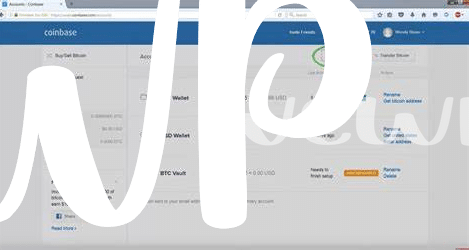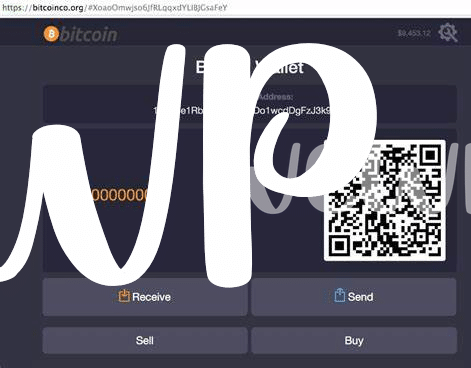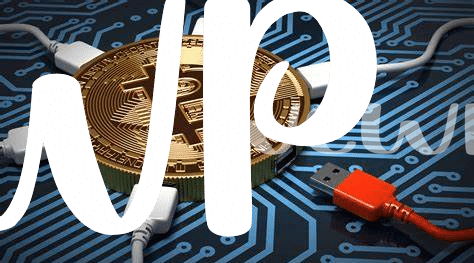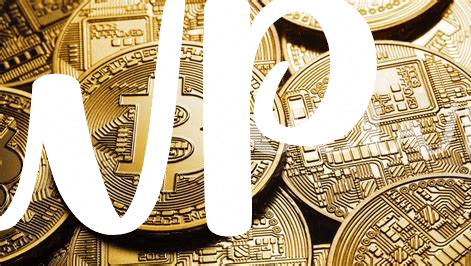Discovering Bitcoin: the Seed of Digital Cash 🌱

Imagine a world where traditional money, with its paper bills and metal coins, starts to feel a bit old-school. Along comes Bitcoin, a sparkly new form of cash that exists purely in the digital realm. Think of Bitcoin as a computer program that lets people exchange value, kinda like sending an email, but instead of words, you’re sending money. What’s really cool about Bitcoin is that it’s not controlled by any single institution, like a bank or government. Instead, it runs across thousands of computers all around the world. Now, you might wonder, “How does it all work without a big boss?” Well, Bitcoin relies on a technology called blockchain. Imagine a chain where each link is a block of transactions, and once a block is full, it’s locked and linked to the chain. This chain isn’t stored in one place but is copied across many computers, making it super tough for someone to mess with it. This ingenious system of keeping track of transactions has opened the door to a future where digital cash can be as normal as tapping a card to pay for coffee.
Here’s a simple table that highlights Bitcoin’s journey:
| Year | Milestone |
|---|---|
| 2008 | Bitcoin’s concept introduced |
| 2009 | First Bitcoin transaction |
| 2010 | First real-world purchase with Bitcoin |
| 2021 | Countries begin to adopt Bitcoin as legal tender |
As we delve deeper into this journey, remember that while the world of Bitcoin can seem a bit daunting at first, it’s essentially about taking back control and opening up new possibilities for how we think about and use money in our daily lives.
Breaking down the Basics: What Makes Bitcoin Tick? ⚙️
Imagine a world where money isn’t just pieces of paper or coins that jingle in your pocket but something totally different—digital, invisible, and smart. That’s where Bitcoin, the very first of its kind, steps into the picture. At its heart, Bitcoin operates on something called blockchain technology. Think of it as a ledger, but unlike any you’ve seen before. This ledger doesn’t need a bank or a government to keep it safe. Instead, it’s maintained by a network of computers all over the world, working together to validate transactions. This makes Bitcoin incredibly secure and almost like a digital fortress. What sets Bitcoin apart is its limited supply—there can only ever be 21 million Bitcoins. This scarcity is what drives its value and makes it similar to gold, or “digital gold,” as some like to call it. Plus, anyone with an internet connection can send or receive Bitcoins, breaking down financial barriers and making it truly global. Alongside its growth, tools for understanding and managing Bitcoin have evolved too. For those looking to dive deeper, visiting https://wikicrypto.news/comparative-guide-to-the-best-bitcoin-conversion-tools offers insightful resources for navigating this digital currency landscape.
Bitcoin Vs Traditional Money: a Battle of Ages ⚔️

Imagine two boxers in the ring, each from a different era. In one corner, we have traditional money, the kind we’ve trusted for centuries, backed by governments and tangible like coins and paper bills. In the other corner, there’s Bitcoin, the newcomer, digital and mysterious, promising a revolution in how we think about and use money. 🥊 This showdown isn’t just about which form of currency is stronger or more stable; it’s about how each fits into our lives. Traditional money is like a well-worn path through a forest we know well – familiar and reliable. In contrast, Bitcoin is like exploring a newly discovered cave, full of unknown treasures and pitfalls.
The heart of this battle lies in trust and control. With traditional money, institutions like banks and governments have a tight grip on the reins, overseeing transactions and setting rules. 🏦 On the flip side, Bitcoin operates on a shared network, free from central control, where transactions are verified by a community of users. This freedom from oversight is liberating for some, yet unsettling for others. As we stand at the crossroads of financial history, the struggle between the familiar comforts of traditional money and the exciting potential of Bitcoin continues to unfold, setting the stage for a future where the concept of money might be radically transformed. 🚀
Real-world Uses: Paying with Pixels 🛍️

It’s fascinating how those bits and bytes stored on our devices are slowly taking over the pockets and purses once filled with cash and coins. Imagine buying a coffee, a book, or even a piece of land on the other side of the globe, all with a few taps on your screen. This isn’t a glimpse into a far-off future; it’s happening right now, thanks to Bitcoin. As it weaves its way into the fabric of our daily transactions, Bitcoin is showing us that spending money online isn’t just about convenience—it’s about breaking free from the traditional financial systems that have held tight reins on our economy. From small businesses accepting Bitcoin to purchase their goods and services to large corporations integrating it into their financial operations, the digital currency is proving its worth beyond speculative trading. With every transaction, Bitcoin is shouting out loud that it’s here to stay, reshaping how we understand and use money in our increasingly digital world. As it stands, understanding the dynamics of digital currencies, like Bitcoin, is crucial, not just for investors but for the average person too. If you’re keen to dive deeper into how digital currencies are valued, a prime starting point would be familiarizing yourself with the btc price, as it’s a pivotal aspect that influences the financial market significantly. As we navigate this digital era, it’s becoming evident that pixels are indeed becoming the new currency, slowly but surely changing our perspective on money and its uses in the real world.
Roadblocks and Hurdles: Navigating Bitcoin’s Challenges 🚧
Navigating the world of Bitcoin isn’t all smooth sailing; there are a few stormy seas to weather. Think of it like a video game – as you level up, the challenges get tougher, but so do the rewards. One major hurdle? Staying in the good books of laws and regulations. Different places have different rules, and keeping up can feel like juggling flaming torches. Then there’s the issue of security. Imagine if your digital wallet, where you keep your Bitcoins, had a hole in it. Yikes! Hackers are always lurking, trying to poke holes and snatch away your hard-earned digital cash. Lastly, let’s talk reputation. Despite all its benefits, some people still view Bitcoin with suspicion, like that one mysterious character in every spy movie. Changing minds is a slow process, but it’s happening, pixel by pixel. Here’s a little cheat sheet to break it down:
| Challenge | Description |
|---|---|
| Regulations | Rules vary worldwide, making compliance a complex dance. |
| Security | Hackers are a constant threat, pushing the need for robust safeguards. |
| Reputation | Misconceptions and skepticism continue to shadow Bitcoin’s potential. |
As daunting as these roadblocks may seem, they’re just bumps on the road. With each challenge navigated, Bitcoin inches closer to transforming the financial landscape, one digital block at a time.
Peering into the Crystal Ball: Bitcoin’s Bright Future 🔮

As we look ahead, the horizon for Bitcoin shines bright. This digital marvel, once a curious experiment, has steadily woven itself into the financial tapestry of our world. It’s not just a form of money; it’s a new way of thinking about what money can be. Imagine a world where your savings grow without the erosion of value by inflation, and sending money to a friend in another country is as easy and cost-effective as sending a text message. That’s the promise of Bitcoin. Its technology is evolving, promising even greater efficiency and security. Innovations like the Lightning Network are making transactions faster and cheaper, ensuring Bitcoin remains at the forefront of financial evolution.
Navigating this future, though, requires tools that bridge the familiar with the new. For those looking to understand how Bitcoin stacks up against traditional currencies in real value, tools like a Bitcoin converter become invaluable. By using a eth price usd converter, investors and curious onlookers can easily translate Bitcoin’s digital value into understandable figures. This accessibility is key to fostering a world where Bitcoin isn’t just a niche asset for tech enthusiasts but a cornerstone of a modern, efficient, and inclusive monetary system. The path ahead is filled with innovation and the promise of a financial system that empowers its users with control, transparency, and security.
